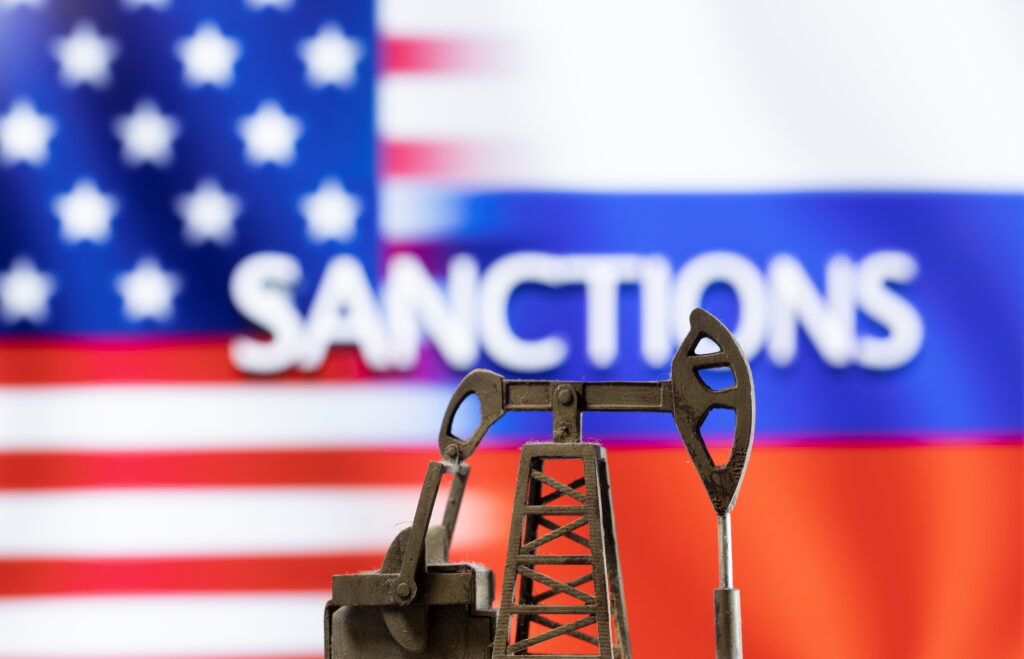(Bloomberg) – The U.S. imposed the first sanctions for violations of the price cap on Russian oil introduced by the Group of Seven nearly a year ago, as signs mount the restriction is failing to cut Kremlin revenues as hoped.

The Treasury Department called the steps a new phase in the enforcement of a policy aimed at limit the flow of money to Russia to fund its war in Ukraine. It announced sanctions on two firms and blocked two vessels it said had violated the cap.
That measure was aimed at keeping Russian oil flowing to the world market to ensure prices didn’t spike but choking off the Kremlin’s financial gains. To do that, the cap bans companies from providing services like shipping and insurance to any cargoes priced above the $60/bbl limit.
Russia has managed to accumulate a fleet of its own, however, and shifted export flows to countries like India, which didn’t join the price cap. In recent months, the price of Russian sales has reached $80 or more and even U.S. officials began to publicly admit the limit was losing effectiveness.
“We remain committed to implementing a price cap policy that has two goals: reducing the oil profits upon which Russia relies to wage its unjust war against Ukraine and keeping global energy markets stable and well-supplied despite turbulence caused by Russia’s unprovoked invasion of Ukraine,” Deputy Treasury Secretary Wally Adeyemo said in a statement.
The U.S. Treasury Department sanctioned United Arab Emirates-based Lumber Marine SA, the registered owner of SCF Primorye, and Ice Pearl Navigation Corp, the registered owner of the Yasa Golden Bosphorus.
The Primorye is accused of carrying Novy Port crude oil priced above $75 per bbl from a port in the Russian Federation after the cap went into effect in December. The Golden Bosphorus carried ESPO crude priced above $80 per bbl after the cap took effect. Both vessels used U.S-based service providers while transporting the oil, Treasury said in a statement.
The Yasa Golden Bosphorous is currently in the Atlantic Ocean and signaling that its next destination is Houston, according to vessel tracking data compiled by Bloomberg. It was unclear whether the ship was going to complete that voyage.
Treasury released its new guidance and announced the sanctions just as G-7 finance ministers were meeting in Marrakech, Morocco, on the sidelines of the annual meetings of the International Monetary Fund and World Bank.
A U.S. official indicated there were currently no plans to lower the oil price cap, as some European nations have suggested. The official also acknowledged that the size of the Russian fleet has grown, though the exact size could not be determined.
Treasury Secretary Janet Yellen last month said the effectiveness of the oil price cap in reducing Russian revenue had waned over time as Moscow had found ways to evade its reach and break its rules.
A key metric of the cap’s impact is the discount of Russia’s Urals grade crude oil to Brent, a global benchmark. For many months that discount exceeded $30 but has recently fallen to about $10.
French Finance Minister Bruno Le Maire told reporters on Thursday that “loopholes” had emerged in the cap that the Group of Seven nations needed to address.



